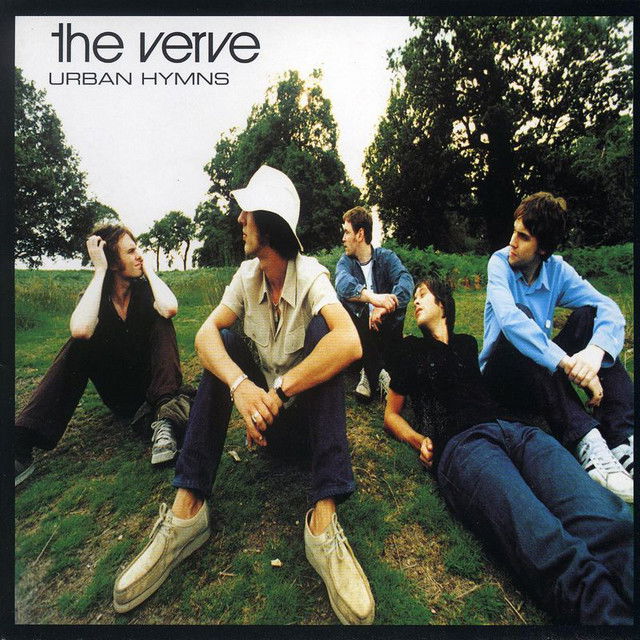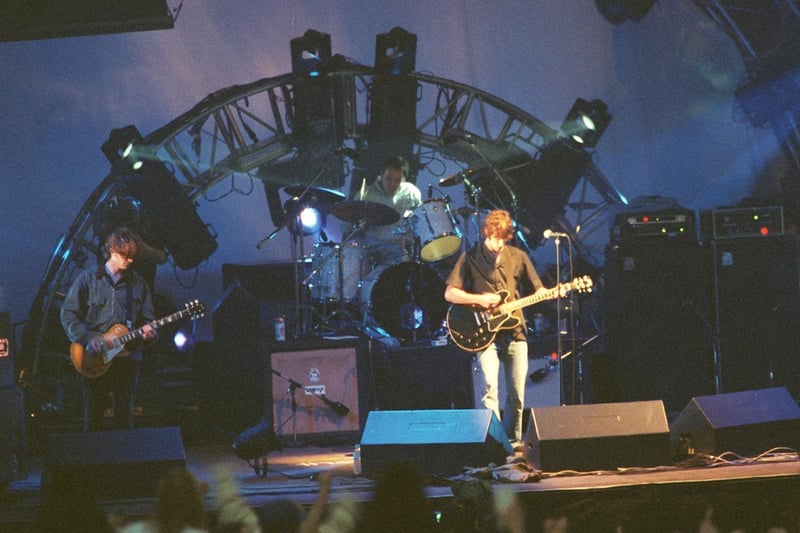Song Stories: The Verve: Bittersweet Symphony
Released in 1997, "Bittersweet Symphony" by The Verve is one of those rare songs that manages to capture the complexities of life in just a few minutes of music. Tackling some hard hitting truths, whilst also being an unbelievable song. The song blends orchestral elements with alternative rock, and has gone to become an instant classic, that transcends genres. Behind the hypnotic strings, the pounding rhythm, and Richard Ashcroft's haunting vocals, lies a deeper story a bittersweet one, fittingly enough that echoes themes of struggle, resilience, and the relentless march of life.
At its core, "Bittersweet Symphony" explores the tension between hope and despair, a balancing act between the highs and lows that make life both beautiful and painful. The opening lyric, "‘Cause it’s a bitter-sweet symphony, this life," immediately sets the tone. It speaks to the universal experience of joy and sorrow coexisting. In the verses, Ashcroft laments the feeling of being trapped in a predetermined system, where “you're a slave to money, then you die.” This stark lyric resonates with many.
This wasn't the first time The Verve would comment on the struggles faced by people, it is something the band had done of their previous record 'A Northern Soul' particulary on songs like "This is Music" and "On Your Own". However "Bittersweet Symphony" and the album it is on "Urban Hymns" elevated things to a whole new level.
The song’s production, led by producer Martin "Youth" Glover and featuring an iconic string sample from Andrew Oldham's orchestral version of The Rolling Stones’ "The Last Time," which creates the emotional weight that carries throughout the song. The sweeping violins create a lush, melancholic soundscape that contrasts beautifully with the rock instrumentation. This unique combination of classical and contemporary elements is one of the reasons why "Bittersweet Symphony" stands out in the annals of 1990s music.

Ironically, the very sample that gives the song its signature sound also led to one of the most infamous legal battles in music history. The Verve had obtained permission to use a portion of the Rolling Stones’ orchestral recording, but after the song’s release, the band was sued by Allen Klein, the Rolling Stones’ former manager, who claimed that The Verve had used "too much" of the sample. As a result, all royalties and songwriting credits were handed over to Mick Jagger and Keith Richards. In 2019, a surprising turn of events occurred. Jagger and Richards returned the rights of "Bittersweet Symphony" to Ashcroft, acknowledging that the song was his creation.
The song is one of the very best songs of the 1990s and one of the catalysts of the Britpop movement, fading away. Unlike the celebratory, upbeat nature of songs by Oasis or Blur, "Bittersweet Symphony" carries a more introspective, almost existential weight. Its influence can still be heard in modern indie rock and alternative music, from bands who similarly blend orchestral sounds with rock foundations.
"Bittersweet Symphony" turned The Verve into household name, the song became their magnum opus and they were no longer the indie cult band from Wigan. They arguably became Britain's biggest band and certainly cemented themselves as one of the most important. "Bittersweet Symphony" quickly became the defining single of the late 90s. It reached No. 2 on the UK Singles Chart and received significant airplay internationally, even breaking into the US market where British rock bands often struggled. It transcended the typical boundaries of a hit single. Its sweeping, cinematic sound, combined with a deeply personal yet universal message, resonated with listeners from all walks of life. The iconic music video, which featured Ashcroft walking defiantly through the streets of London while bumping into pedestrians, added to the song’s rebellious, everyman ethos.
The success of Urban Hymns, bolstered by follow-up hits like "The Drugs Don’t Work" (which became their first UK No. 1 single) and "Lucky Man," solidified The Verve’s status as one of Britain’s biggest bands. The album itself went on to sell over 10 million copies worldwide, making it one of the best-selling albums of the decade.
For a brief moment, The Verve were the kings of British rock. They headlined festivals, sold out stadiums, and enjoyed a level of popularity that placed them alongside giants like Oasis and Radiohead. Richard Ashcroft, with his charismatic stage presence and intense lyrics, became one of the defining frontmen of the era.

Thank you for reading x